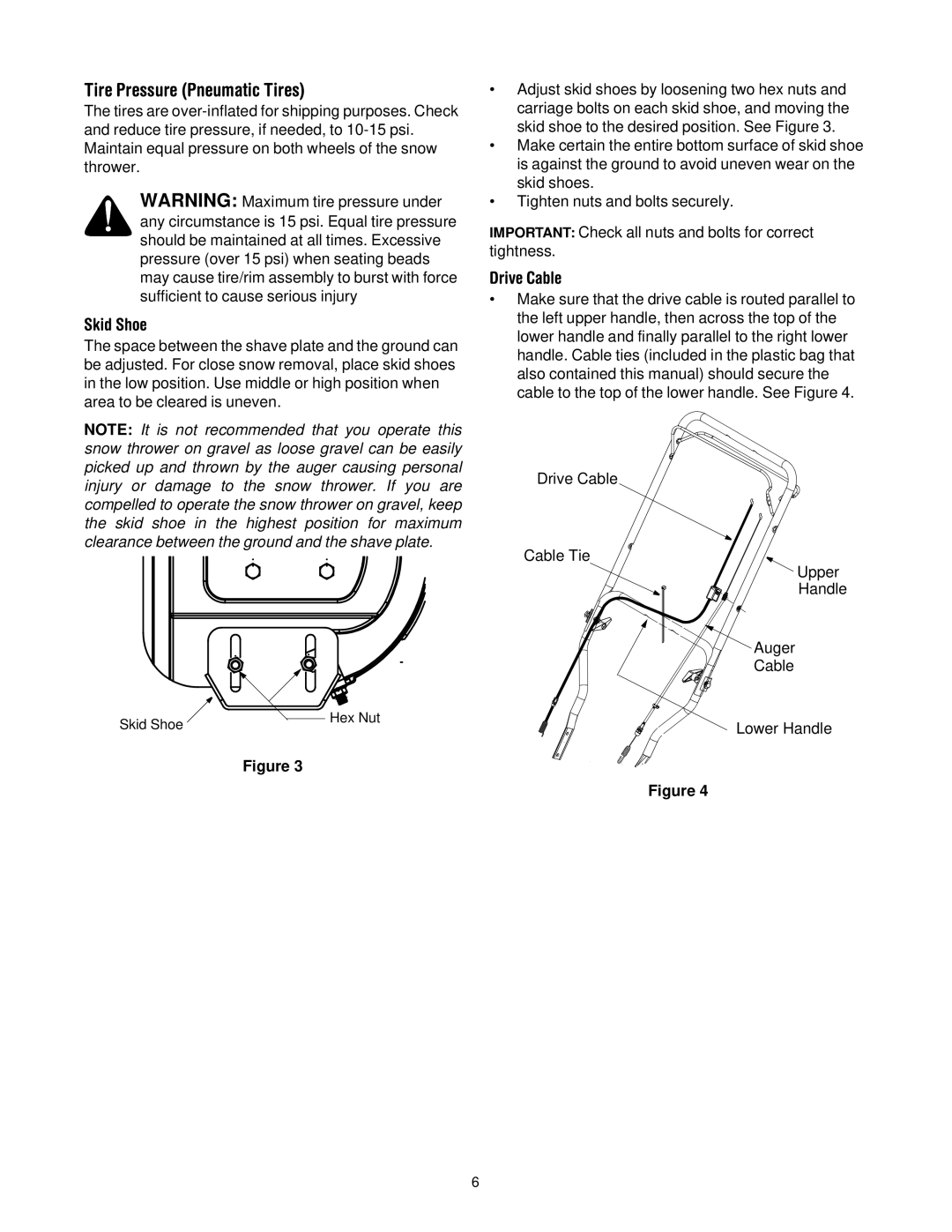
Tire Pressure (Pneumatic Tires)
The tires are
WARNING: Maximum tire pressure under any circumstance is 15 psi. Equal tire pressure should be maintained at all times. Excessive pressure (over 15 psi) when seating beads may cause tire/rim assembly to burst with force sufficient to cause serious injury
Skid Shoe
The space between the shave plate and the ground can be adjusted. For close snow removal, place skid shoes in the low position. Use middle or high position when area to be cleared is uneven.
NOTE: It is not recommended that you operate this snow thrower on gravel as loose gravel can be easily picked up and thrown by the auger causing personal injury or damage to the snow thrower. If you are compelled to operate the snow thrower on gravel, keep the skid shoe in the highest position for maximum clearance between the ground and the shave plate.
Skid Shoe |
| Hex Nut |
| ||
|
|
Figure 3
•Adjust skid shoes by loosening two hex nuts and carriage bolts on each skid shoe, and moving the skid shoe to the desired position. See Figure 3.
•Make certain the entire bottom surface of skid shoe is against the ground to avoid uneven wear on the skid shoes.
•Tighten nuts and bolts securely.
IMPORTANT: Check all nuts and bolts for correct tightness.
Drive Cable
•Make sure that the drive cable is routed parallel to the left upper handle, then across the top of the lower handle and finally parallel to the right lower handle. Cable ties (included in the plastic bag that also contained this manual) should secure the cable to the top of the lower handle. See Figure 4.
Drive Cable
Cable Tie
Upper
Handle
![]()
![]()
![]() Auger
Auger
Cable
Lower Handle
Figure 4
6
